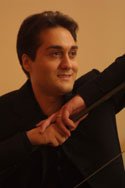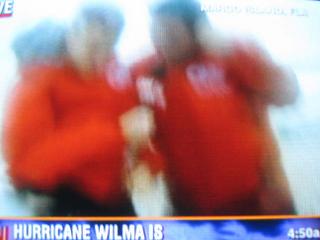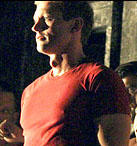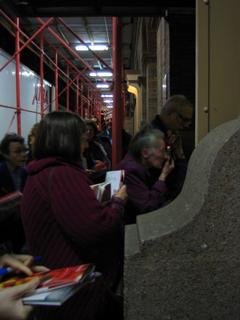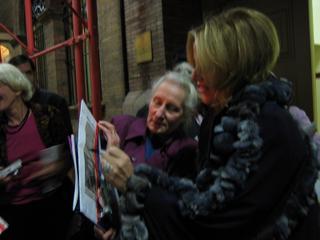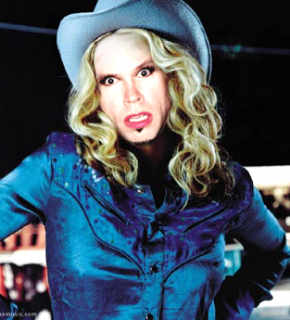Strauss ARIADNE AUF NAXOS, Met 11.10.2005; Petrenko; Urmana, Damrau, Graham, Villars, Allen.
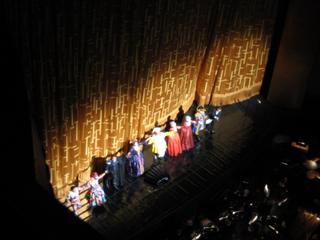 (Don't believe a word I say.) Last night's Ariadne was the most vigorous, the most energetic, the best ensemble-sung of the three I saw of this Met run. In their genuine happiness with the music, everyone was juggling balls and doing cartwheels. However, I'm less certain about the quality of the individual performances this time. You see, to try something new I positioned myself on the left side of the auditorium, in an upper box across the auditorium from where I usually sit, and what I got was a drastically different 'view' of the singers. From this vantage point, every voice seems to have changed. There's turbidity caused by Sieglinde's faulty memory, as well as the expected variance from performance to performance--but to these ears, it seemed like an alternate-cast evening. The bottom line appears to be that all these hyperdetailed opera 'reviews' are but ornate bullishit, self-serving noise from lonely opera queens in need of a date. Twin ears present on the same evening, but positioned in two opposite sides of the house, are bound to bitchslap one another during intermission meetings by the Millo pole. Sieglinde exaggerates (her nature and her prerogative), but as in all the bullshit she's been known to release, there's a bit of truth in there somewhere (hidden beneath the make-up and persistent body hair).
(Don't believe a word I say.) Last night's Ariadne was the most vigorous, the most energetic, the best ensemble-sung of the three I saw of this Met run. In their genuine happiness with the music, everyone was juggling balls and doing cartwheels. However, I'm less certain about the quality of the individual performances this time. You see, to try something new I positioned myself on the left side of the auditorium, in an upper box across the auditorium from where I usually sit, and what I got was a drastically different 'view' of the singers. From this vantage point, every voice seems to have changed. There's turbidity caused by Sieglinde's faulty memory, as well as the expected variance from performance to performance--but to these ears, it seemed like an alternate-cast evening. The bottom line appears to be that all these hyperdetailed opera 'reviews' are but ornate bullishit, self-serving noise from lonely opera queens in need of a date. Twin ears present on the same evening, but positioned in two opposite sides of the house, are bound to bitchslap one another during intermission meetings by the Millo pole. Sieglinde exaggerates (her nature and her prerogative), but as in all the bullshit she's been known to release, there's a bit of truth in there somewhere (hidden beneath the make-up and persistent body hair).
 Heavy breathing. Now that all the bullshit is out of the way, let's proceed to last night's Ariadne. Violeta Urmana's voice, to these ears, carries a bit less power this time. Her notes are still all there, shimmering and spellbinding, but now it seems she's easily overtaken during moments when Strauss's small orchestra decides to show off and do Wagnerian leaps. While the color of her phrases is never boring, the ending of 'Es gibt ein Reich', and similar points in her music, hunger for a more substantial top (predictably, being a Voigt connoisseur, Sieglinde puts forward Voigt). Meanwhile, Diana Damrau's Zerbinetta is luxurious in commitment and pizzazz, but technically now 'just OK'. Some notes are smudged together during machine-gun runs; there is a hollow/metallic quality to her sound; and from where I'm sitting one can hear her aspirate audibly between phrases (a pet peeve). Whatever. She steals the show nonetheless. Moving on: the tenor of Bacchus, Jon Villars, failed painfully Saturday matinee (when he skipped some of those lethal notes above the staff, hiding shamelessly behind the thunderous pit), but makes a respectable recovery for the last performance. If you think it's all a downgrade-- Susan Graham's Composer is a complete creation, stunning and full from every angle, vantage point, and time of day. I can't imagine Graham singing any other role better. Previously, I was harsh about Maestro Kirill Petrenko's work, but now I see that his many drawn out arches during the Prologue was calculated in part to showcase Graham's cream: it can backfire on an off-night, but otherwise, as last evening, Strauss's music vaporizes into pure, fragrant magic.
Heavy breathing. Now that all the bullshit is out of the way, let's proceed to last night's Ariadne. Violeta Urmana's voice, to these ears, carries a bit less power this time. Her notes are still all there, shimmering and spellbinding, but now it seems she's easily overtaken during moments when Strauss's small orchestra decides to show off and do Wagnerian leaps. While the color of her phrases is never boring, the ending of 'Es gibt ein Reich', and similar points in her music, hunger for a more substantial top (predictably, being a Voigt connoisseur, Sieglinde puts forward Voigt). Meanwhile, Diana Damrau's Zerbinetta is luxurious in commitment and pizzazz, but technically now 'just OK'. Some notes are smudged together during machine-gun runs; there is a hollow/metallic quality to her sound; and from where I'm sitting one can hear her aspirate audibly between phrases (a pet peeve). Whatever. She steals the show nonetheless. Moving on: the tenor of Bacchus, Jon Villars, failed painfully Saturday matinee (when he skipped some of those lethal notes above the staff, hiding shamelessly behind the thunderous pit), but makes a respectable recovery for the last performance. If you think it's all a downgrade-- Susan Graham's Composer is a complete creation, stunning and full from every angle, vantage point, and time of day. I can't imagine Graham singing any other role better. Previously, I was harsh about Maestro Kirill Petrenko's work, but now I see that his many drawn out arches during the Prologue was calculated in part to showcase Graham's cream: it can backfire on an off-night, but otherwise, as last evening, Strauss's music vaporizes into pure, fragrant magic.
 Ain't over till Zerbinetta sez so. You know how the trigger-happy Met audience almost always claps prematurely towards the end of Zerbinetta's fireworks, prompted by the high D-flat and Pavlovian *applause* cadence in the music? Well, Damrau does something about it, cutely. She releases the high note, spins around, holds her palm forward (miming "stop, bitch, not done yet"), slides down to Strauss's patented anticlimax "Kam der neue Gott gegangen, Hingegeben war ich stumm, stumm," jumps onto her little chair, smiles adorably and waits for payday. Music ends, roaring ovation for two minutes ensues (led by really loud fags up in the family circle strata), Damrau is touched, pulls hands to chest, then bows head. Diva! (No one tell Natalie Dessay, OK.)
Ain't over till Zerbinetta sez so. You know how the trigger-happy Met audience almost always claps prematurely towards the end of Zerbinetta's fireworks, prompted by the high D-flat and Pavlovian *applause* cadence in the music? Well, Damrau does something about it, cutely. She releases the high note, spins around, holds her palm forward (miming "stop, bitch, not done yet"), slides down to Strauss's patented anticlimax "Kam der neue Gott gegangen, Hingegeben war ich stumm, stumm," jumps onto her little chair, smiles adorably and waits for payday. Music ends, roaring ovation for two minutes ensues (led by really loud fags up in the family circle strata), Damrau is touched, pulls hands to chest, then bows head. Diva! (No one tell Natalie Dessay, OK.)

